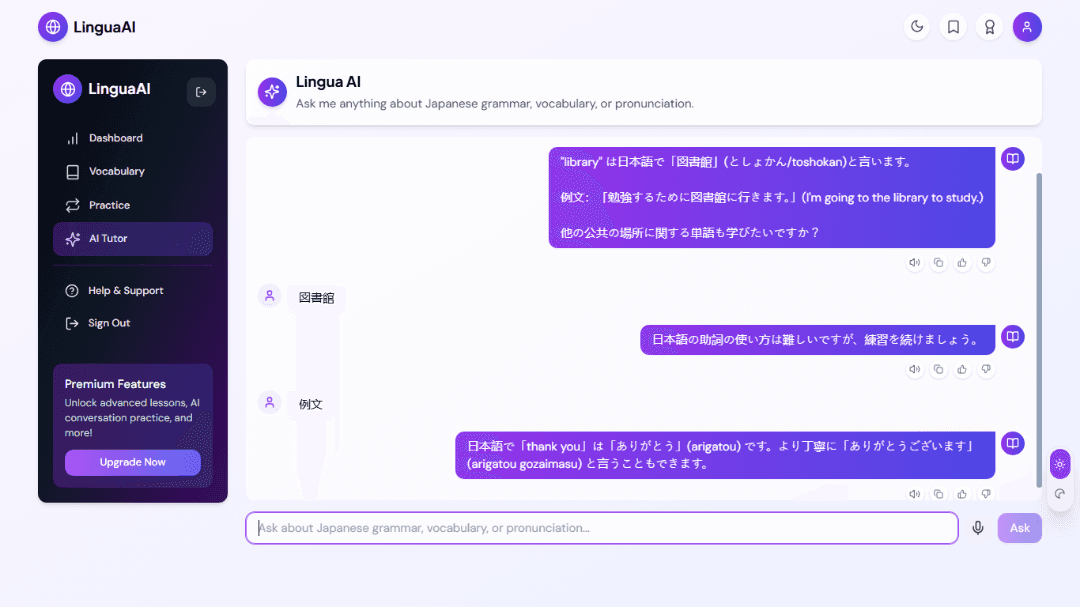🌍 LinguaAI – Personal AI Language Tutor UI Template
LinguaAI is a sleek and modern frontend UI template tailored for building AI-powered language learning platforms. Developed with Next.js 14, Tailwind CSS 3, and Shadcn UI, this template is ideal for AI-driven tools that teach global languages through chat, voice, pronunciation, quizzes, and progress tracking.
✨ UI & Usability Highlights
✅ Modern, minimal and clean interface
♿️ Accessible UI components with Shadcn
🌗 Built-in dark mode toggle
📱 Mobile-friendly, responsive layout
📊 Analytics-ready components for tracking learning progress
🎞️ Smooth animations and interactive experience
🧼 Clean and scalable code architecture
🔌 Easily connect APIs for AI, audio, and learning modules
🧠 Core Language Learning Features (UI-ready)
📊 Learning Analytics & Progress Tracking
🌐 Support for 7+ Languages including French, Japanese, Russian, and Spanish
📚 Vocabulary Builder with:
Word pronunciation (Text-to-Speech)
Voice input (Speech-to-Text)
❓ AI Tutor Chat Assistant:
Ask grammar, vocabulary, and pronunciation questions
Recognizes spoken input in supported languages
Reads answers aloud using browser TTS API
📝 Interactive Quiz Practice with multiple question types
🔁 Voice-based Interaction:
Speak to AI in your selected language
AI replies via text and voice (TTS/STT using Web APIs)
🚀 Getting Started
Download & Unzip
After purchasing and downloading the ZIP file, unzip it. Inside, you’ll find a folder namedlingua-aiNavigate to the Project
Open your terminal or command line, and navigate to the folder:cd lingua-aiInstall Dependencies
Run the following command to install all required packages:npm installRun the Development Server
Once installation completes, start the development server:npm run devVisit the App
Open your browser and visit:Start Customizing
Open the project in your favorite code editor (e.g., VS Code) and begin customizing:🎨 Change Colors: Update color palette in
tailwind.config.tsor use global Find & Replace🔠 Change Fonts: Update fonts in global styles or Tailwind config
📁 Add Pages or Components: Extend UI from the organized
components/andapp/folders⚙️ Integrate APIs: Hook up real data by integrating your backend endpoints
